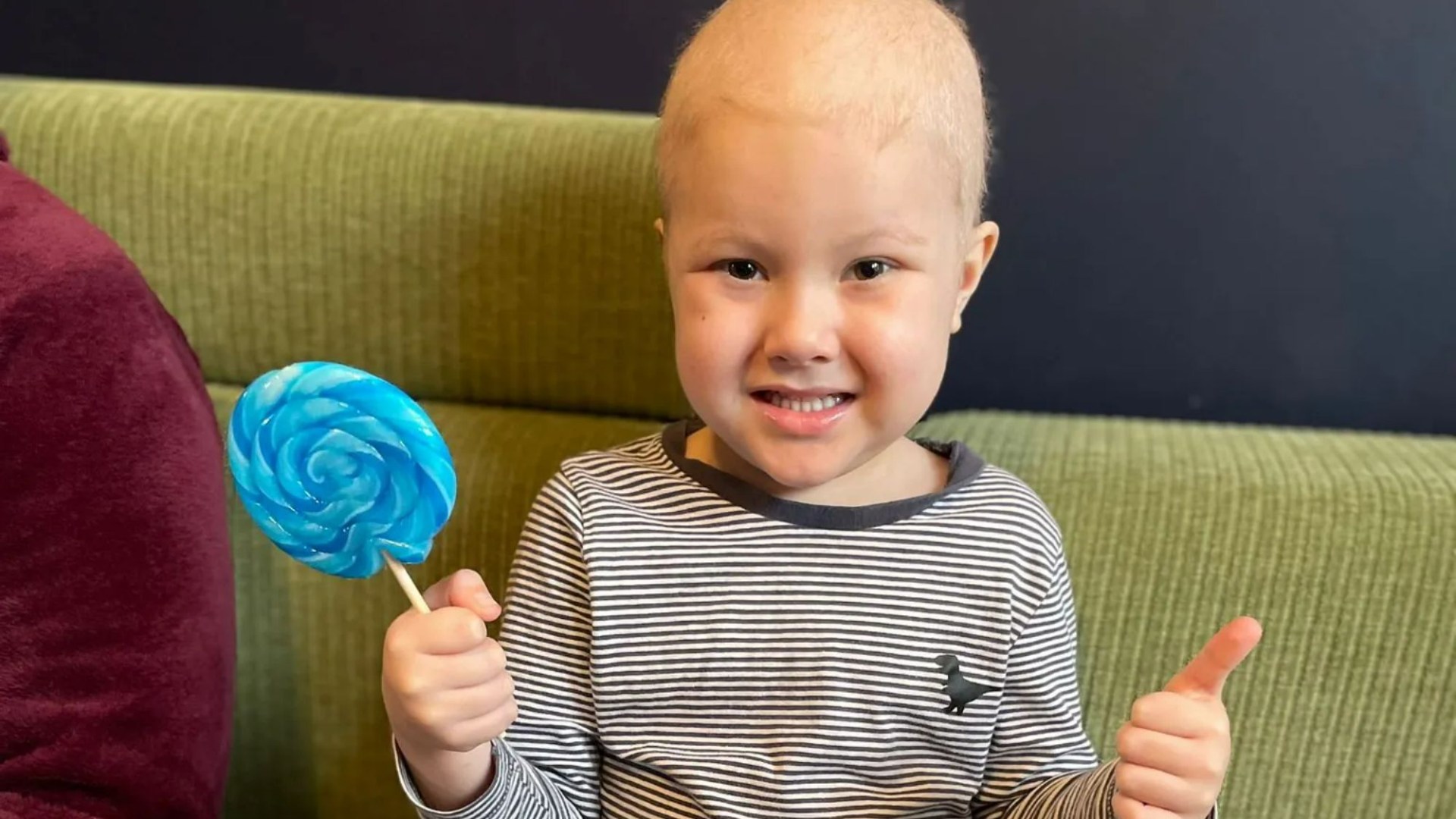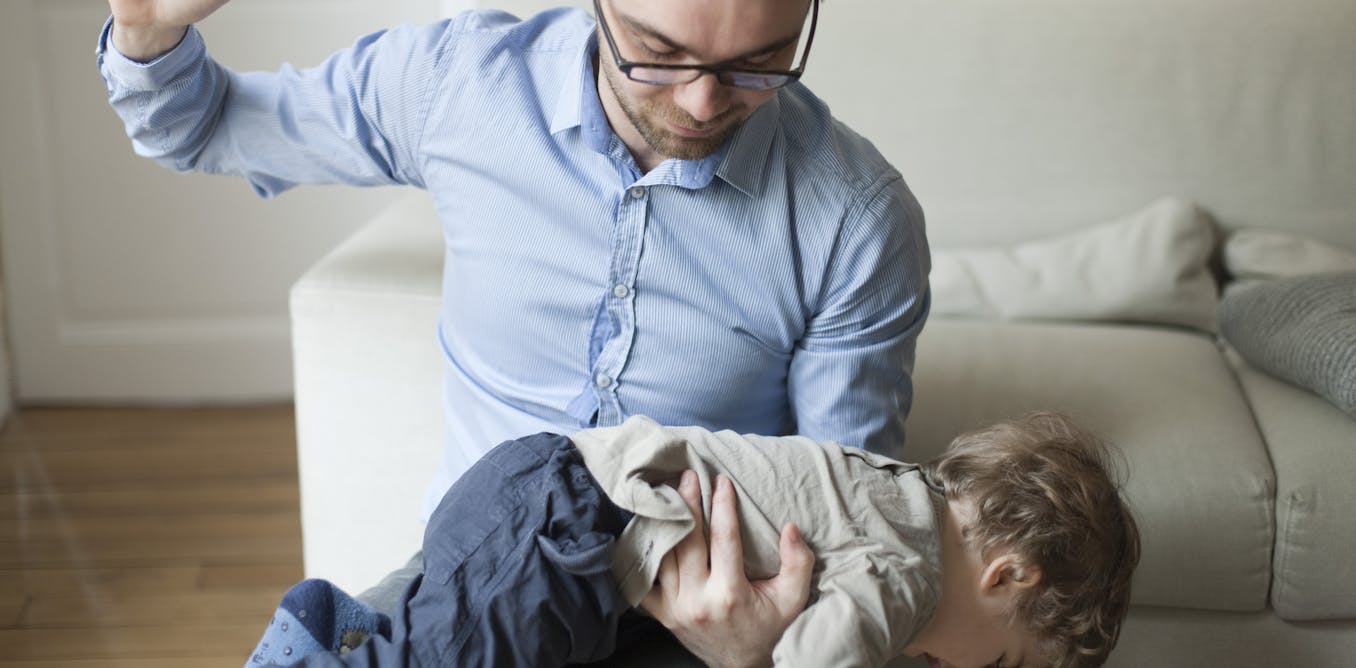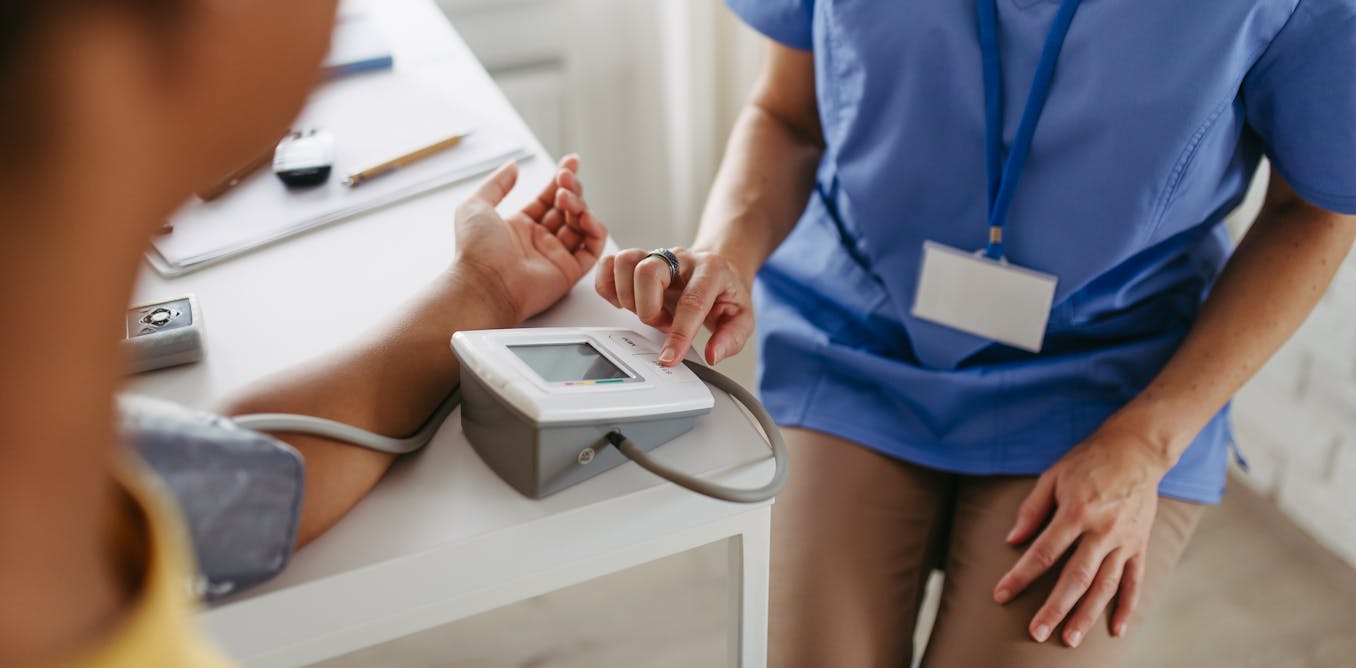LEUKAEMIA can be difficult to spot because symptoms often mimic common illnesses like fatigue.
But one mum was alerted to her son having leukaemia when checking his lunchbox.
5

5
Vinny Wicks, now seven, was diagnosed with the cancer in August 2023.
Now, after months of treatment, he’s looking forward to a peaceful festive time at home and getting the all clear in 2025 when his chemotherapy ends.
Vinny’s parents, Harriet, 38, and Matthew, 41, told of the telltale signs they spotted their son was ill – and how they persisted until they got help.
One of the first symptoms they noticed was he lost his appetite.
He’d return home from trips with a full lunchbox, which doctors dismissed this as a cold or tonsillitis.
But when his parents spotted red dots all over his body they demanded hospital tests and experts at Great Ormond Street Hospital (GOSH) said he had 65 per cent of the cells in his body were leukemic.
Harriet, an executive assistant who isn’t currently working, from Leytonstone, East London, said: “We’ve tried to make his life as normal as possible but when something happens to your child it’s really hard.
“This Christmas we’ve gone large with the tree, the most incredible neon light display and have booked every single Christmas experience we can do.
“We just want to make it as happy and joyful and make up for last year.
“Christmas last year was particularly hard for us as he had an anaphylactic shock to one of the medications.
“That was a rock bottom moment in the early days of December.
“It was the most anxiety-inducing moment of my life.
“The fact it happened all around Christmas which is supposed to be the most magical time of his childhood.”
Change in sleeping pattern
In the months before Vinny’s diagnosis Harriet and Matthew began to notice another change in his habits – his sleeping pattern changed.
Harriet said: “He always used to wake up in the night and in the last school term I noticed he started to sleep through the night, which wasn’t normal.
“He also stopped eating, hardly anything and he had a cold and that went on for about three months.
“We were told by doctors it could be a million different things relating to colds.
“Then after a summer camp, he came back and he looked awful. He hadn’t eaten anything from his lunch box.
“He then started vomiting and doctors thought it was tonsilitis.
We were told by doctors it could be a million different things relating to colds.
Harriet Wicks
“But after a four-day holiday with his dad, he could barely walk, he was sleeping at funny times and not eating.
“He had some red dots called Petechiae and I know that’s a telltale sign for low platelets and leukemia.
“We took him to hospital and prepared him for blood tests.
“We tried to stay as positive as possible but they came back with his tests pretty quickly.”
Vinny was diagnosed with leukemia in August 2023 after doctors discovered his full blood count was lower than usual.
His platelets level was 12 with a normal level usually ranging between 500 and 700.
The symptoms of childhood acute lymphoblastic leukaemia
Acute lymphoblastic leukaemia (ALL) is a type of blood cancer.
It starts from white blood cells called lymphocytes in the bone marrow.
Anyone can get it, but it is most common in younger people, especially children aged four and under.
Symptoms often mimic other conditions, but kids might experience:
- Feeling weak or tired
- Flu-like symptoms
- A high temperature (fever)
- Picking up or not being able to shake off infections, such as coughs and colds
- Bruising and bleeding easily
- Weight loss
- Swollen lymph nodes
- Bone or joint pain
- Breathlessness
- Feeling full
- Looking pale or washed out
Some patients will also get a rash that looks like tiny red, purple or brown dots that don’t turn white when pressed.
Almost 90 per cent of children under 15 with ALL will survive for five years or more after being diagnosed.
Source: Cancer Research UK
For two weeks, he had blood transfusions and bone marrow samples taken while doctors continued with chemotherapy to reduce the leukemic cell count.
He responded well but when Christmas rolled around, Vinny hit “rock bottom” when he suffered an anaphylactic shock from one of the medications.
The family then had to spend a further six days at GOSH for his higher dose of chemotherapy, with Vinny only allowed to return home on Christmas Eve and spending much of Christmas Day too unwell to move.
Vinny was eventually moved on to maintenance chemotherapy in April – daily oral tablets and a monthly hospital visit.
His family are now looking forward to the festive period – desperate to make up for last year.
Coming out the other side
Vinny’s treatment officially ends in October 2025.
She said: “It was a whirlwind.
“The first month was the worst – he was being pumped full of chemicals to try and get rid of it.
“The side effects and the emotions that come with that are insane.
“You watch your child go from being ill and these drugs even though they are helping, in the moment they are making your child extremely unwell.”
Vinny was often visited by the Great Ormond Street Hospital Charity Play Team – to take his mind off of his illness.
Harriet said: “The play team is there all the time.
“The familiarity of having that same person there is really comforting for the child.
“They are trained so well and they really take into consideration everything about your child.
“When Vinny was at GOSH over Christmas, Father Christmas visited him on the ward every day, he was given Christmas presents and the play team put on loads of Christmas activities.”
Vinny and his family have raised £31,000 for GOSH Charity. To donate, visit www.gosh.org/donate/christmas.

5

5

5




